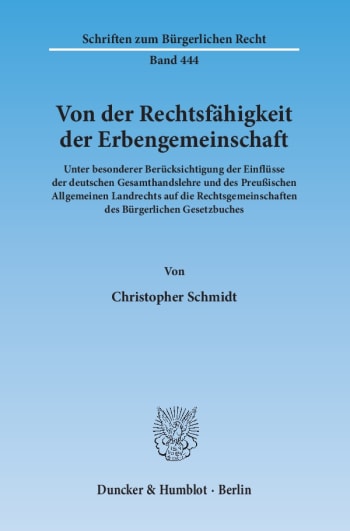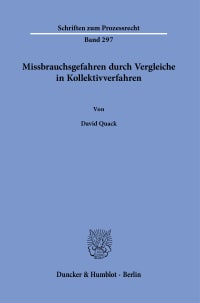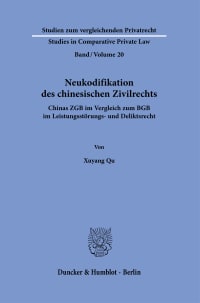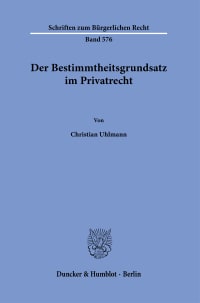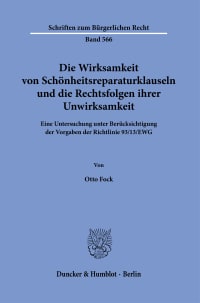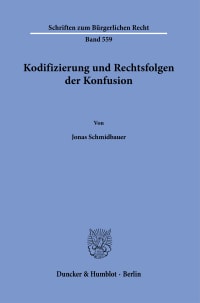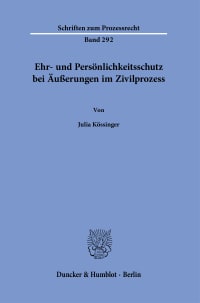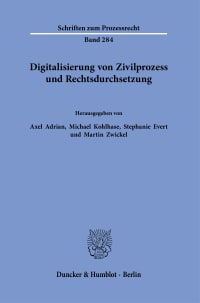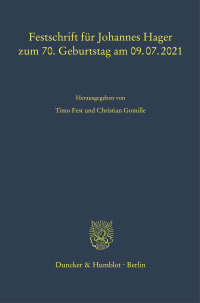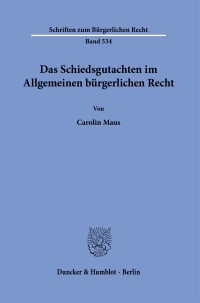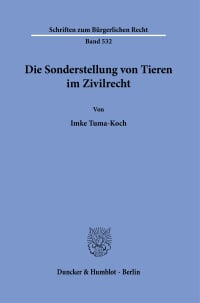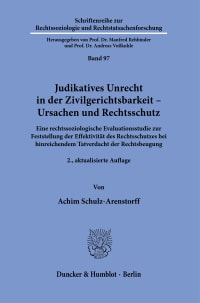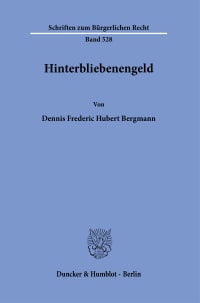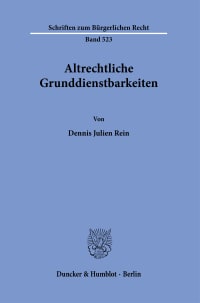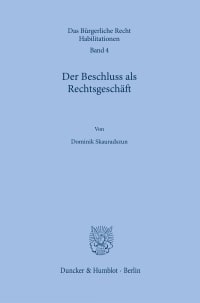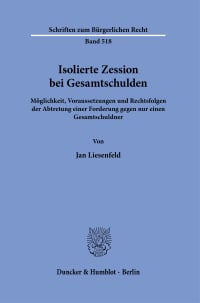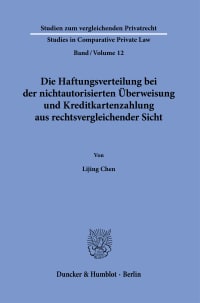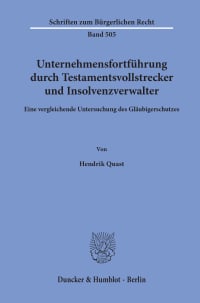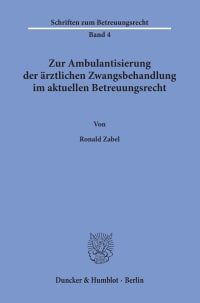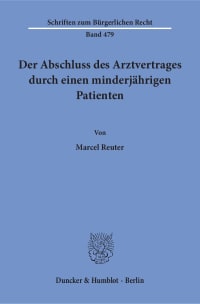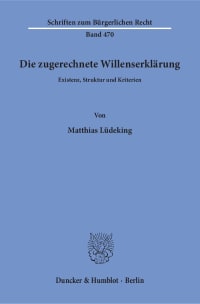Unter besonderer Berücksichtigung der Einflüsse der deutschen Gesamthandslehre und des Preußischen Allgemeinen Landrechts auf die Rechtsgemeinschaften des Bürgerlichen Gesetzbuches
Description
»About the Legal Capacity of the Community of Heirs«
Judicature and doctrine have always struggled to classify the german community of joint owners among the conventional legal communities: the community of part-owners and the juristic person. In renunciation of this dogmatically waged dispute, the German Federal High Court of Justice ruled, solely based on practical considerations, that the community of heirs – as one of the three communities of joint owners in the German Civil Code – has no legal capacity. This thesis attempts to prove that the aforementioned dispute and the question of the legal capacity of the community of heirs can only be solved on a dogmatic basis and not just by searching for a feasible solution.
Overview
Einleitung
I. Historische Entwicklung der Gesamthandslehre
Von der Gesamthand als Trägerin von Rechten und Pflichten
II. Zur rechtlichen Konstruktion der Gesamthand
Kritische Würdigung der Gesamthandstheorien des BGB
III. Von der Rechtsfähigkeit der Erbengemeinschaft
Von den Ursprüngen der Erbengemeinschaft im Preußischen Allgemeinen Landrecht – Die Rechtsfähigkeit der Erbengemeinschaft in der Rechtsprechung des BGH – Die Teilnahme der Erbengemeinschaft am Rechtsverkehr. Eine Auswahl relevanter Problembereiche – Fazit
Literatur- und Sachwortverzeichnis
Press Reviews
»Schmidt hat hier in akribischer Kleinarbeit die Diskussion über die Gesamthand seit dem Beginn des 19. Jahrhunderts nachvollzogen und analysiert. Dabei belegt er in eindrucksvoller Weise die unterschiedlichen Vorstellungen vom ›Wesen‹ der Gesamthand etwa als besondere Form der Bruchteilsgemeinschaft mit nicht veräußerlichen Anteilen oder eben als eigenständiges Rechtssubjekt in verschiedenen Ausprägungen. [...] Die in jeder Hinsicht gelungene Dissertation von Schmidt bietet jedenfalls einen reichen historisch wie aktuell begründeten Fundschatz an Argumenten. Der erbrechtlich interessierte Leser und zwar auch derjenige, der gewöhnlich keine Monografien liest, findet hier eine nicht nur lesenswerte, sondern trotz des Anspruchs auch eine lesbare Dissertation.« Prof. Dr. Maximilian Zimmer, in: Zeitschrift für die gesamte erbrechtliche Praxis, 3/2016
